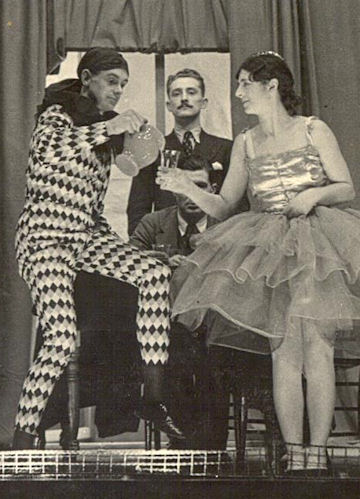Cast:
Margot Brett, Dolly Browne, Agens Copnall, Philip Elliott, Alfred Emmet, Mabel Frere, Eileen Grigg, Kenneth McKenzie, Mia McKenzie, Ewart Shellshear, Cyril Thomas, Gwendolen Thomas, Phillip Woollcombe
Production Team:
John Ruck, Barbara Sharp, Phillip Woolcombe
|

